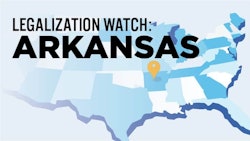
Alex | Adobe Stock
This week, rioters and looters targeted cannabis businesses, breaking into dispensaries and stealing cannabis products and cash from mostly small businesses amid protests denouncing the extrajudicial killing of George Floyd. Elsewhere, in Connecticut and Iowa, lawmakers approved legislation to expand the states’ medical cannabis programs.
Here, we’ve rounded up the 10 headlines you need to know before this week is over.
- Federal: Rioters and looters targeted cannabis businesses this past week, breaking into dispensaries and stealing cannabis products and cash from mostly small businesses amid protests denouncing the extrajudicial killing of George Floyd. Dozens of cannabis operations across the country were targeted by looters and unaffiliated armed individuals, who broke windows, display cases and entered secured areas. Read more
- Louisiana: The Louisiana House has approved legislation that would expand access to the state’s medical cannabis program, sending the bill to Gov. John Bel Edwards. House Bill 819, sponsored by Rep. Larry Bagley (R-Stonewall), would allow any doctor to recommend medical cannabis for any debilitating condition. Read more
- Arkansas: A campaign seeking to place an adult-use cannabis legalization initiative on Arkansas’ 2020 ballot has renewed its signature gathering efforts after a recent court ruling that allows petitioners to collect signatures remotely. Arkansas True Grass, one of two groups supporting proposed constitutional amendments to legalize adult-use cannabis in the state, previously announced last week that it was abandoning efforts to place its initiative on the 2020 ballot, instead focusing on qualifying the measure in 2022. Read more
- Colorado: Gov. Jared Polis has extended through June 28 executive orders that allow medical cannabis dispensaries to offer online ordering, curbside pickup and telemedicine in response to the COVID-19 pandemic. While Colorado’s medical cannabis law prohibited these services, Polis issued orders in March in response to the coronavirus crisis that allow dispensaries to offer online ordering and payment, as well as curbside pickup, to help promote social distancing and slow the spread of the virus. Read more
- Maine: Maine Cannabis Coalition, a group of local cannabis businesses, filed a lawsuit against the state May 29 following Maine’s decision to eliminate its residency requirement for adult-use cannabis businesses. Last month, the state reached an agreement with cannabis operator Wellness Connection of Maine that repealed a rule requiring license applicants to live in the state for a minimum of four years after Wellness Connection filed a lawsuit in March to challenge the constitutionality of the residency requirement. Read more
- Oklahoma: The state’s medical cannabis sales surpassed $73 million in May, the highest monthly figure since the program launched. Figures from the Oklahoma Tax Commission show May sales generated more than $11.6 million in sales tax revenue, which includes $6.5 million in state and local taxes and another $5.1 million from the state’s cannabis excise tax. Read more
- Montana: A recent rule change in Montana allows the state’s registered medical cannabis patients to be “untethered” from dispensaries, meaning that patients previously tied to one provider can now purchase medical cannabis from any dispensary in the state. The new policy took effect June 2. Read more
- Connecticut: The General Assembly’s only bipartisan committee voted June 2 to add chronic pain and Ehlers-Danlos Syndrome to the state’s medical cannabis program. The Regulation Review Committee’s vote comes eight months after a panel of physicians recommended adding the conditions to the program, and brings the total number of qualifying conditions for adults to 38, while there are 10 qualifying conditions for children under the age of 18. Read more
- Iowa: The Senate passed a bill June 3 to change the THC cap in the state’s medical cannabis program, sending the legislation to Gov. Kim Reynolds. The legislation, which cleared the House in March, would replace the state’s current 3% THC limit for medical cannabis products with a limit of 4.5 grams of THC in a 90-day period. Read more
- California: Gov. Gavin Newsom is predicting a decline in cannabis sales due to the coronavirus crisis. In January, Newsom projected that the state’s cannabis excise tax would generate $479 million in revenue this year and $590 million in the fiscal year starting July 1, the news outlet reported, but according to his revised budget, he is predicting $443 million this year and $435 million next year as the state’s economy faces a recession due to the pandemic. Read more

























